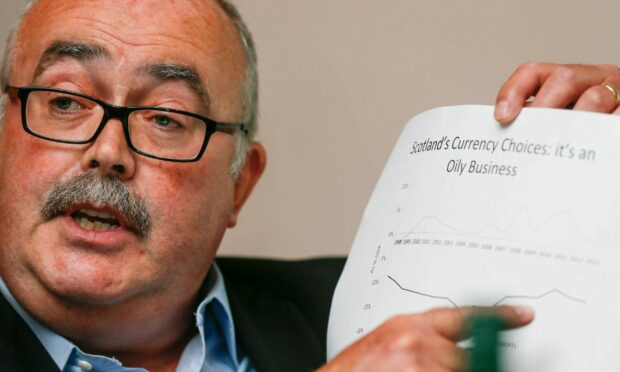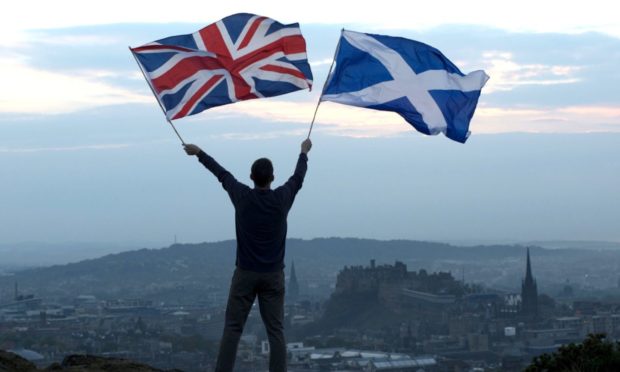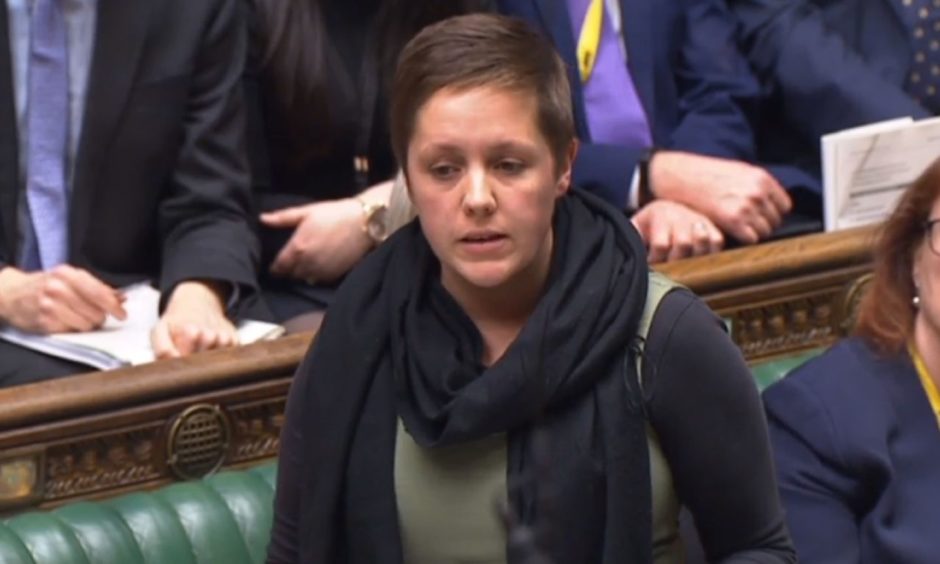Scottish independence would cut family incomes by £7,300, according to a new analysis.
Professor Ronald MacDonald, a leading currency expert, said a hike in the cost of imports, as well as increased debt costs and higher interest rates, would effectively slash 20% from the average Scottish household income.
The calculations have been published today on ourmoney.scot, a new website founded by Prof MacDonald and linked to unionist campaign group Scottish Business UK (SBUK).
Households currently take home an average of £35,000 a year but would see their spending power reduced by the equivalent of £7,300, it is claimed.
But SNP MP Kirsty Blackman said remaining in the UK offered the “chaos, austerity and inequality of Westminster”.
First Minister Nicola Sturgeon unveiled a new economic blueprint for independence last month, including plans to create a Scottish currency when key tests have been met.
Mr MacDonald, who is professor of macroeconomics at the Adam Smith Business School at Glasgow University, argued that Scotland would be forced to adopt a new independent currency immediately after independence.
The analysis said that imported goods would cost average families the equivalent of £4,300 extra, while debts would become £1,500 more expensive to repay, and interest rate rises would be worth another £1,500.
‘These are big numbers’
Prof MacDonald said: “You’re talking in my view of a devaluation of between 20% to 30%.
“These are big numbers and they will affect peoples’ wages and they will affect peoples’ mortgages.
“The key thing the SNP is not telling people is that financial markets bring events forward. The crisis will be brought forward to day one of independence.
“It’s obvious why they don’t want to talk about what will happen on day one of independence.”
Ms Blackman, SNP MP for Aberdeen North, said the UK currently suffers some of the worst levels of poverty in north-west Europe, and faces the looming threat of a “long and bitter” recession.
“As the cost of living crisis deepens – with households struggling with rising prices, higher mortgages and record levels of inflation – the Westminster Tory government has piled on the hardship with an extreme Brexit and making plans to impose austerity 2.0,” she said.
“And while the Scottish Government has used its limited powers to support families – including through the Scottish Child Payment – Westminster has targeted the most vulnerable by cutting Universal Credit.
“Scotland cannot afford the chaos, austerity and inequality of Westminster.
“Time and time again it has been made clear that only with the full powers of independence will we be able to escape harmful Westminster control, long-term economic damage, and build a fairer, greener and more prosperous society.”


